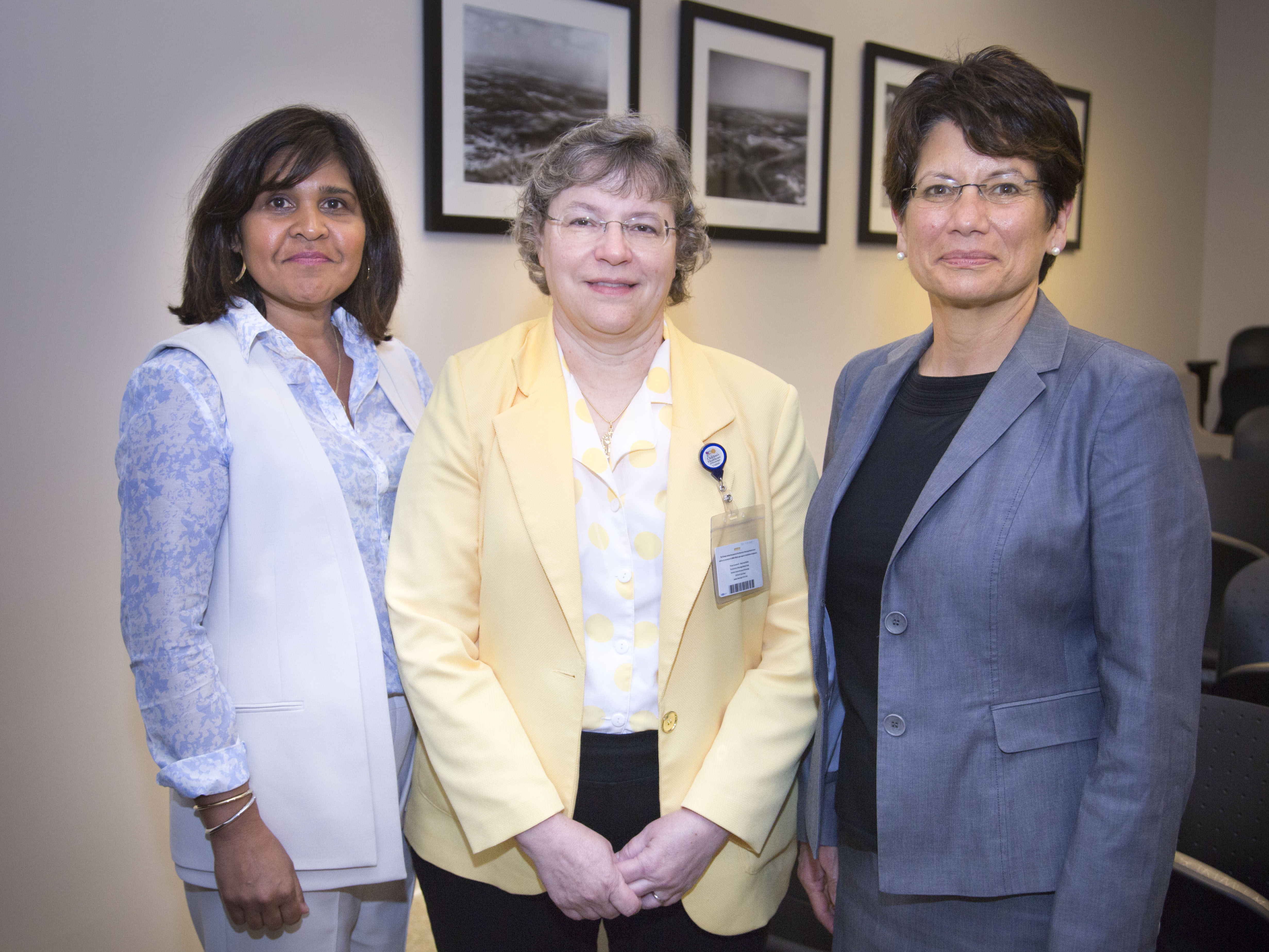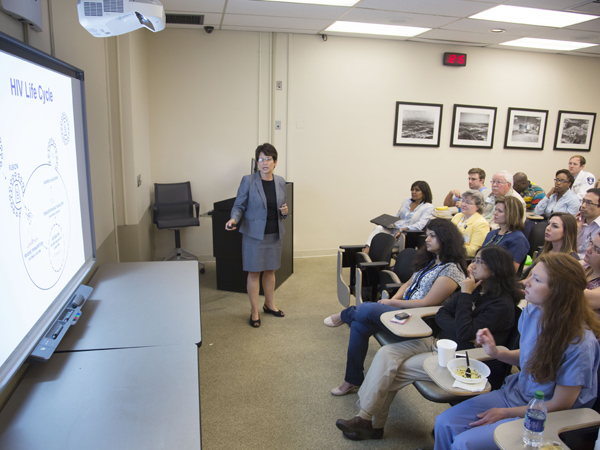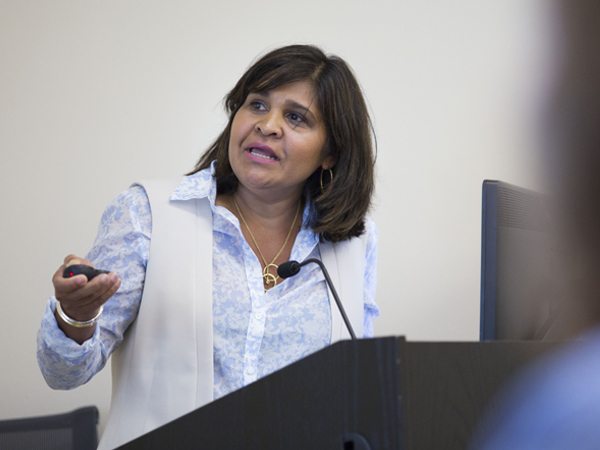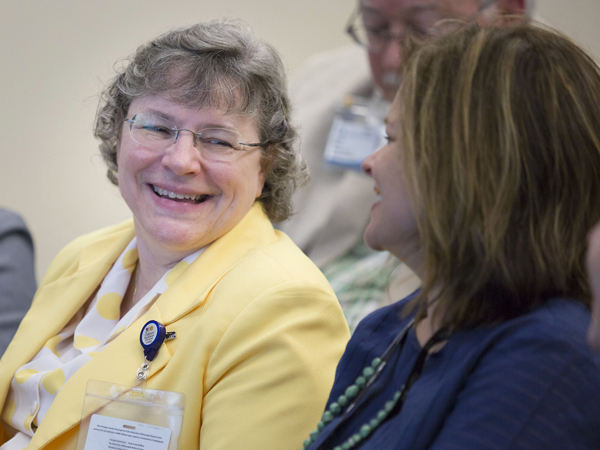‘Mississippi Baby’ case offers clues in battle against HIV

Blood was drawn on what was thought to be a routine visit to UMMC.
A child, 23 months old and born to an HIV-infected mother, was being checked for virus levels. Treatment with a combination of antiretroviral drugs had been started just 30 hours after birth. The cocktail was doing its job; there was a diminishing viral presence that was virtually undetectable by 29 days old.
Antiviral therapy ended at about 18 months of age against medical advice, and Dr. Hannah Gay, a UMMC professor of pediatrics, was expecting HIV to have rebounded when the child returned five months later for care. The blood work would tell the tale.
But the tests came back negative for HIV.
“I thought the lab had messed it up,” Gay remembered. Without treatment, the child called “Mississippi Baby” should have had HIV that was easily detectable with standard tests and on the rise. “I called the mother, and they came back in and we re-did the tests. They all came back negative. I knew then to call Katherine and Debbie.”

Gay's colleagues, Dr. Katherine Luzuriaga, a pediatric immunologist at the University of Massachusetts Medical School, and Dr. Deborah Persaud, a pediatric virologist at Johns Hopkins School of Medicine, revisited the case of “Mississippi Baby” during pediatric grand rounds Wednesday at UMMC, showing what was learned from the child.
Hailed in 2013 as being in remission, “Mississippi Baby” had a relapse of the virus in 2014, referred to by Gay as a “punch in the gut.”
Still, much is being learned from the case, said Luzuriaga, and “it all started with a really astute clinician, … a thoughtful and caring clinician,” Dr. Hannah Gay.
Gay is retiring later this month but will have emeritus status at UMMC.
The legacy of the “Mississippi Baby” case, said Luzuriaga, is that scientists are learning more about how HIV, the virus that causes AIDS, can lie in wait for replication and a relapse later. Doctors, through use of tests that can detect HIV early, can start antiretroviral treatment early in infants. Early detection and treatment, the U.S. Department of Health and Human Services and the World Health Organization have said, mean better chances for a decreased presence of HIV.

The “Mississippi Baby” case also proved, said Persaud, that a child whose HIV infection was scientifically documented could go into remission even after not taking antiretroviral drugs for a period of time.
Persaud praised Gay's meticulous medical record-keeping in the case, as well as her “compassion and vigor” in research. “Even if we didn't cure HIV, everyone knows about the Mississippi child (case), and for that I am very grateful,” she said, pointing out the case spotlighted the importance of early detection and treatment in pediatric cases.
The rate of mother-to-child transmission of HIV is now less than 1 percent in the developed world, a 58 percent reduction from 2001 to 2012. In Mississippi, no mother-to-child transmission of HIV has been documented in the past five years, and there has been no transmission of women treated for HIV during pregnancy since 2000.

“If I have a legacy, it is that we've prevented hundreds of cases of transmission,” said Gay, “and prevention is far better than cure.”
Dr. Jahnavi Chatterjee, a pediatric resident at UMMC, found the presentation and story of Gay's HIV research here “inspiring, since infectious diseases is one of my career choices.”
While not the elusive cure, containing HIV growth means the virus that was once the equivalent to being given a death sentence is now treated as a chronic illness, “like diabetes,” said Gay.
And “Mississippi Baby?” Back on antiretroviral drugs, “'Mississippi Baby's' doing great,” said Gay. “Loaded with personality and just finished kindergarten. Katherine and Debbie got to meet 'Mississippi Baby' Tuesday.”
Does the child realize her importance to the understanding and treatment of HIV? “Not today, but I'm doing a scrapbook for the parents to give 'Mississippi Baby' so the child can understand the history when older.”


